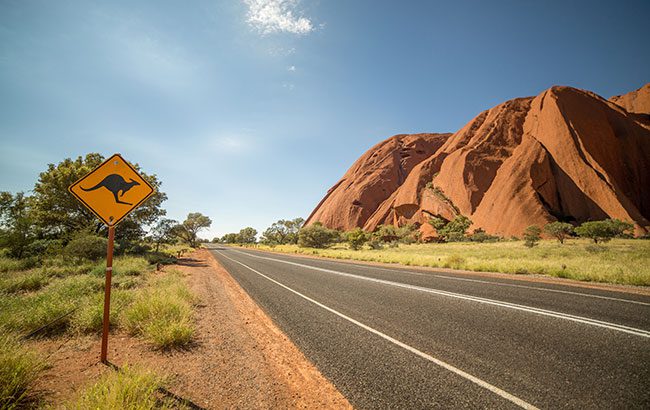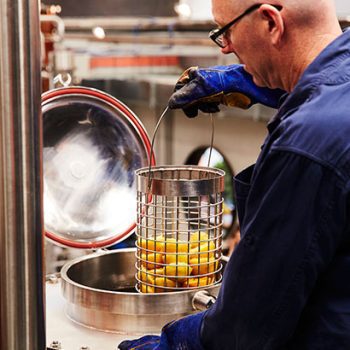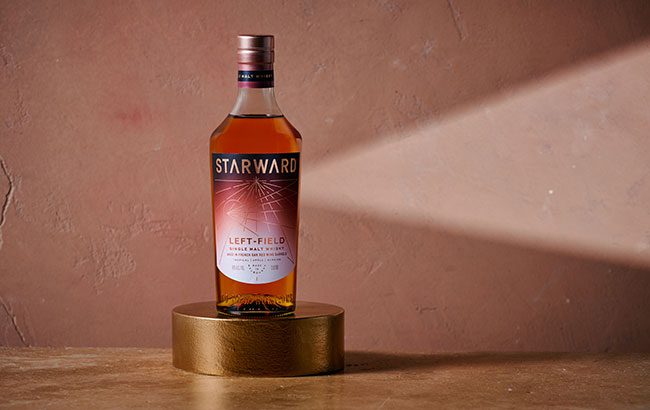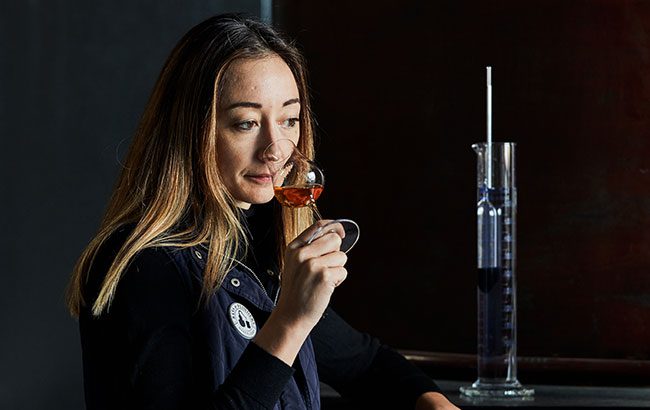Heavy duty: Australian brands grapple with tax hikes
By Rupert HohwielerThe biannual Australian spirits excise hike is an enormous black cloud that hangs over the country’s sector, and continues to take a toll on distillers. Insiders discuss what needs to change.

*This feature was originally published in the August 2024 issue of The Spirits Business magazine.
It’s becoming a tale as old as time – Australian distillers are still locked in a standstill with the federal government over the twice-a-year spirits excise rise that has been in place since 1983.
Back then there were only two distilleries said to be in existence, but there are now many more, with more than 700 distillers operating in the country.
Any hope for Australia to emerge as a true spirits production powerhouse, on par with the likes of Ireland and Japan, lies with the punitive spirits excise, which to the exasperation of everyone affected, rises every February and August based on the consumer price index (CPI).
Australian whisky, rum, gin, and even now agave spirits, are held in high regard internationally. How far they can all really grow, though, is an issue that remains in limbo until the government addresses taxes.
Dan Hamilton, managing director of Diageo Australia, believes the tax is “by far the number-one challenge” the country’s spirits industry faces.
He says: “It is the handbrake on the industry that needs to be released. Excise in Australia is the third highest in the world [after Norway and Iceland]. It goes up twice a year, every year, indexed to CPI, and we’re currently looking at AU$101.85 (US$66.70) per pure litre of alcohol.”
Export opportunity
To further enforce what the industry could be capable of if the shackles were taken off, Diageo Australia, along with the Australian Distillers Association, worked with research firm Mandala on a study that showed the country’s spirits industry could be a billion-dollar export opportunity by 2035, should government policy settings allow. “We think we’re putting together a pretty compelling argument that there is a real opportunity to have a vibrant and growing local spirits industry as part of that broader food and beverage infrastructure,” Hamilton says. “And we’re asking the government to support that with a two-year freeze on excise. The idea is that this will create conditions and time for further review.”

Cameron Mackenzie, head distiller at Four Pillars Gin, one of Australia’s more seasoned spirits brands, is on the same wavelength. “If I’m being honest, it’s gotten to the point of being ridiculous,” he says. In the past 12 months, there has been an excise remission for distillers to claim the first AU$350,000 of excise.
However, Mackenzie claims this gets eroded twice a year through the tax increase.
“The thing is it unwittingly sets up a ‘cottage industry’ because there’s not a great deal of incentive to produce more product above that remission. We missed the great opportunity of becoming a fantastic global player, which Australia should be, and is for wine. We’re well known for beer, we’re great for produce, we should have a spirits industry. It is ludicrous that our gins are cheaper on the shelf in the UK and the US than they are in Australia.”
Inquiry launched
This year a food and beverage manufacturing inquiry was set up by the federal government, with spirits looped in. For spirits, there were around 100 submissions – an impressive number – so Mackenzie hopes that the pushes for change are being heard. He says: “A really well-thought-out logical discussion paper has been put together. There are jobs there for manufacturing, there is innovation. It competes with import products – which is massive in Australia and spirits because most of our spirits are imported. It’s a compelling external export proposition. It promotes tourism.
“We would hope that at the end of that, the federal government will sit down and essentially say ‘this is an industry that ticks a lot of boxes, that is worth investing in and worth building’, rather than putting a natural ceiling on it and just creating a tiny industry.”
Dave Vitale, who is both the founder of whisky brand Starward and vice-president of the Australian Distillers Association, says through the inquiry, the government has asked to visit distilleries (it will be going to Starward in August), which is a “positive sign”, as it shows it wants to learn more about what’s going on. It brings home the point that the biannual increase is the reason why some distilleries are struggling to make ends meet.
“The majority of submissions to the inquiry were from spirits producers,” Vitale says. “So we’re pretty optimistic that we’ve been heard.” For the record, in 2023, Australian distilleries were visited by more than 3.5 million people, according to the Australian Distillers Association. This outpaces the country’s other tourist attractions, including wineries and breweries, for growth.
However, Vitale says the situation overall is “looking pretty grim”. Vitale traces the value spirits add to the economy all the way down to the origins of the production. He says: “Spirits are a primary production product, and people kind of forget that. At the beginning of our production is a farmer making barley that then is malted. We’re able to then turn that barley from AU$300 a ton, at the farm gate, into close to AU$30,000 a ton once it’s in the form of whisky.”
For Starward, 40%-50% of its revenue comes from overseas, which Vitale says is fortunate for the brand because it had early investment from a strategic partner (accelerator programme Distill Ventures), which understands how to scale a business.

In the States, however, companies don’t need to seek that capital investment to export because of the tax regime in place. Vitale, who lives in Seattle, US, says: “We’re finding that to grow their business, those US companies are turning up on our doorstep and competing against Australian spirits. So notwithstanding the fact that they have to pay that excise here, they’ve been able to scale to a point at which they’ve been able to export and invest in overseas markets.”
Greg Holland, chief executive of Spirits & Cocktails Australia, adds: “The excise regime places Australian spirits manufacturers at a competitive disadvantage, compared with our international peers that operate under much lower tax rates, which allow these businesses to allocate significantly greater revenue to invest in marketing and exports.”
Impossible to scale up
Scaling up is now nigh on impossible for young Australian brands, which, unlike Starward, have not had early investment to help mitigate the “crazy” level of tax. Just 3% of Australian distillers benefit from foreign investment, says Holland. “The high level of excise is unfortunately constraining distillers’ ability to attract investment or reinvest in their business to grow.”
The Australian distilling scene is mostly made up of smaller businesses – 88% of manufacturers employ fewer than 20 people. One of these brands is Bass & Flinders, which produces gin and brandy from Dromana on the Mornington Peninsula.
On how excise is affecting the brand, for a AU$79 bottle of Bass & Flinders gin, 48% of the retail price goes straight to federal tax. That’s just one example. In addition, the massive number of global brands in countries where the excise is more favourable creates what founder Holly Klintworth calls a “tolerance point” at which consumers will stop paying the price of local craft spirits and switch to lower-priced international imports.
Tough decisions
Klintworth explains that as a small distiller the tax is particularly bad because “the reality of this tax regime is that businesses like my own are having to make tough decisions whereby as the biannual excise increases with no cap we are forced to ring-fence more money each year so that we can continue to pay our ever-increasing tax bills, rather than be able to reinvest this into employing more staff, growing production capacity, tourism and export opportunities”.
She also adds that the landscape has changed significantly over the past year: “Consumer spend is down across tourism regions like our own on the Mornington Peninsula where our distillery door is based. Additionally, national retailers are telling us that price has become ever more important in the current economic climate.
“Trading down to lower-priced imported spirits is an easy way for consumers to save money while things are tight. Raw materials, dry goods, wages and freight continue to increase, along with the never-ending biannual excise increase. It’s a very challenging and unstable economic environment to be trying to operate a craft distillery in.”
While pessimism is understandable, everyone maintains hope, and there are solutions in the short term, as figuring out a long-term reform in policy will take time.

Establishing a body called Spirits Australia has been suggested to the government by the Australian Distillers Association, in the same mould as one in Japan, implemented in 2013 by the Japan External Trade Organisation. This would be dedicated to promoting Australian spirits, including marketing, improving regulation and compliance, and supporting innovation. And it would also enable spirits manufacturers to work hand in hand with the government. Vitale compares it with the support wine receives.
“It would be great to get something like that up and running because we have a body, Wine Australia, which is funded by the federal government,” he says. “In the same way, it can look at what best practices are – both in terms of integrity of product, in labelling, technical standards, export market opportunities… all the things that a robust industry should have, they can carry forward.”
Duty freeze
Vitale also says a duty freeze, like the one in the UK, would be a huge help: “The government’s a big machine and it’s slow moving. One thing that they could do with the stroke of a pen very easily is just to freeze the excise. I think that will at least provide some certainty to distillers that are trying to plan for the next 12-18 months, while the economy is hurting.” This would at least provide a start, and Vitale points out that small wins like a freeze “build momentum towards the change that we’re all looking for”.
Echoing these thoughts, Mackenzie adds: “I don’t think we’ll see a reduction in tax, but I do think we’ll see a change in structure. What that looks like, I’m not too sure. We’ve had 22 tax increases since we launched the business in 2013. The fact that we’ve been able to grow to the point that we have is remarkable in the face of such a ridiculous tax structure. But I do think common sense will prevail.”
How does the Australian excise tax affect your brand?
Matt Sanger – managing director, Curatif
“The way that the current excise system is structured provides an even more patently unfair burden on Curatif than most businesses in our industry. Not only do we wear the full brunt of the AU$101.85 spirits excise, we also are not eligible for the AU$350,000 remission that distillers receive, or any of the other compensatory measures that are built to offset the extremity of a tax system that increases twice annually, and is pegged to CPI for those increases, which in turn inflates the price of alcoholic beverages (some of which make up the household expenditures that CPI is measured from). Without urgent, stakeholder-informed reformatory measures, this government and those that succeed it will only continue to deliberately and excessively seed inflation and grind the entire industry to a halt beneath it.”
Related news
Kinglake builds Australia’s first underground warehouse
Australian rum maker Brix Distillers files for administration
